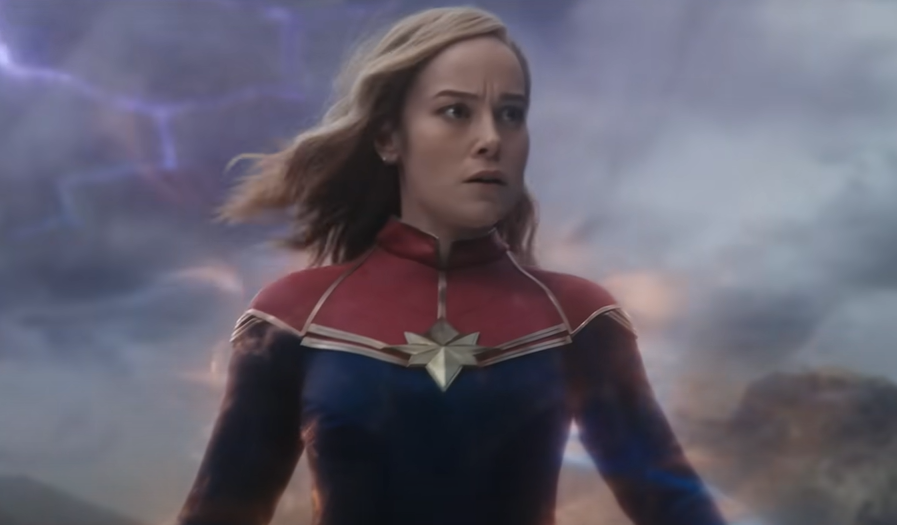Screenrant was my source for it:
Dial of Destiny has really struggled.

screenrant.com
Ah, interesting. I hadn't seen that.
You seem to have a poor understanding of how overhead works in cinema. If it costs you 100M to make a movie and you get 440.1M in revenue, that is a success. You spend 200M to make it and get 439M in revenue, you didn't do as well.
Yeah, I'm aware that marketing costs go above the budget for development. You also haven't refuted my point, which is that if you call one film a success and another film a failure, it's based on the profitability of the film, not on its popularity.
No, since your "example" is a really poor one.
Okay, now that you've acted like a complete @$$ trying to prove your point, here's what you missed:
In marketing, "popularity" is measured in financial results. How much someone likes a product is measured in how much of that product is purchased. The entire point of advertising is to get people to purchase the product.
If people do not like something, they are not going to buy it. So marketing's job is to convince them to buy it.
Got that?
As for your lemonade stand example": Barbara sold more cups than either of the other sellers, and made her money without extravagant overhead or shooting herself in the foot. More people bought her product, so even if all three were the same price, she won out with more sales. All you did was to point out how marketing can backfire when done poorly.
Not to mention: If Spike owns the lemonade stand, then how is INDY making money off it?
Ok, here, I'll grant you, I am the victim of editing my own example and failing to catch every change I made. Initially I was looking at Dial of Destiny, when it occurred to me that we had an even better example of Transformers vs. John Wick. Apologies if the name switch was confusing. I've revised it to make the example clearer.
However...
Guess
Dial of Destiny was so bad that poor Indy went into partnership with Spike to sell lemonade?

So with all of that said: since it's clear that I'm not dealing with a rational adult in speaking with you,
I'm placing you back on ignore where you belong. Meanwhile, do everyone in this topic a favor and
kindly take that chip on your shoulder out for a walk.
Please,
don't let the door hit you in the @$$ on the way out.
...you actually haven't done anything to refute my point except honed in on an editing error, and otherwise just reiterated that profitability = popularity.
It doesn't.
I mean, you can scream it from the rooftops, march up and down the street with a sign, ring a bell while waring a sandwich board chanting it, but...that's not what the word means.
What really boggles my mind here about what you wrote was that you spent a lot of time talking about how the goal of marketing is to get more people to buy more units of something (true), and that more units purchased means the product was popular (also true)...which is exactly what I was saying above, and is literally my point. And yet, you're still insisting that a film that
makes more money is more
popular than another film.
It isn't. Or at least, you can't automatically say that it is without also considering what was spent to produce the film.
That's why the Transformers/John Wick example is apt: they both made just about the same amount of money, which implies they both sold about the same number of tickets. In other words, they were about equally popular. But one was more profitable than the other.
Look, I get it. You need these films to be both unpopular, and unpopular for the reasons you don't like them (i.e., they're "woke" or "pandering" or whatever). But the sad fact is that...they are popular. They just aren't profitable. I will grant you that they aren't popular
enough to make Marvel its money back. And they aren't as popular as past Marvel films were. No denying that. But again, none of that tracks with your "Go woke, go broke" theory, which, let's be clear, is a pile of crap disproven by the barest casual glance at ticket sales this year alone.
If we take what you yourself said, that "
How much someone likes a product is measured in how much of that product is purchased," then the most liked product this year is...Barbie. An explicitly "woke" film, led by a woman, directed by a woman, advertised as such, and which is rife with messages skewering the patriarchy. Doesn't really support the whole "Go woke, go broke" notion, does it? In fact, there's
zero evidence to support that theory when you look at film performance this year through the rubric of popularity that you yourself described. Most of these films sold tens of millions of tickets
. They're pretty popular by that standard. Some are more popular than others (again, with woke Barbie leading the pack), but they're all pretty popular. They just aren't all as profitable, and that's because most studios keep spending on these films like they're all gonna be the next $1B film, and...they just aren't. And this is the case across the board. It's not just Marvel. LFL, Sony Pictures, Paramount, Disney (main Disney, I mean, not one of the subsidiaries), they're all spending money hand over fist, but their films aren't crossing the $500M mark in most cases. This is across genres, both in and out of franchises, etc.
This is a production problem and studios need to figure out how to get more film for their buck if they're gonna turn profits. Until they do, I think most studios will be seeing a lot of "disappointing" returns across the board.


